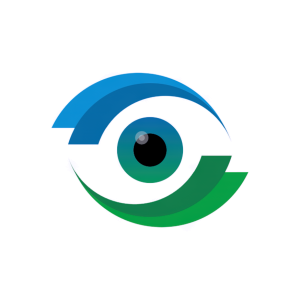Ocugen, Inc. Announces Dosing Completion of Subjects with Stargardt in Cohort 1 of Phase 1/2 Clinical Trial Evaluating the Safety and Efficacy of OCU410ST
MALVERN, Pa., Feb. 22, 2024 (GLOBE NEWSWIRE) -- Ocugen, Inc. (“Ocugen” or the “Company”) (NASDAQ: OCGN), a biotechnology company focused on discovering, developing, and commercializing novel gene and cell therapies and vaccines, today announced that dosing is complete in the first cohort of its Phase 1/2 GARDian clinical trial for OCU410ST (AAV5-hRORA)—a modifier gene therapy candidate being developed for Stargardt disease. Stargardt disease is an orphan blindness disease that affects approximately 35,000 people in the United States alone.
“This is an important clinical milestone for our first-in-class, potential one-time therapy for the treatment of Stargardt disease,” said Dr. Arun Upadhyay, Chief Scientific Officer and Head of R&D at Ocugen. “Although Stargardt is one of the most common inherited retinal diseases, there remains no treatment option to address this condition. OCU410ST provides hope to these patients who may eventually lose their vision.”
Up to 10 leading retinal surgery centers across the United States are participating in the GARDian clinical trial. In the first cohort, 3 subjects received 200L single subretinal administration of the low dose (3.75x1010 vg/mL) of OCU410ST.
“I am very pleased to participate in this study and to offer a novel modifier gene therapy option to my patients,” said Benjamin Bakall, MD, PhD, Director of Clinical Research at Associated Retina Consultants and Clinical Assistant Professor at the University of Arizona, College of Medicine—Phoenix. “Until now, we have not had any effective treatment that can prevent the vision loss in patients with Stargardt disease. Now, I believe that this approach can offer a new therapeutic option to address the disease itself.”
The GARDian clinical trial will assess the safety of unilateral subretinal administration of OCU410ST in subjects with Stargardt disease and will be conducted in two phases. Phase 1 is a multicenter, open-label, dose ranging study consisting of three dose levels [low dose (3.75×10E10 vg/mL), medium dose (7.5×10E10 vg/mL), and high dose (2.25×10E11 vg/mL)]. Phase 2 is a randomized, outcome accessor-blinded, dose-expansion study in which adult and pediatric subjects will be randomized in a 1:1:1 ratio to either one of two OCU410ST dose groups or to an untreated. The Company will continue to provide clinical updates.
About Stargardt Disease
Stargardt disease is a genetic eye disorder that causes retinal degeneration and vision loss. Stargardt disease is the most common form of inherited macular degeneration. The progressive vision loss associated with Stargardt disease is caused by the degeneration of photoreceptor cells in the central portion of the retina called the macula.
Decreased central vision due to loss of photoreceptors in the macula is the hallmark of Stargardt disease. Some peripheral vision is usually preserved. Stargardt disease typically develops during childhood or adolescence, but the age of onset and rate of progression can vary. The retinal pigment epithelium (RPE), a layer of cells supporting photoreceptors, is also affected in people with Stargardt disease.
About OCU410ST
OCU410ST utilizes an AAV delivery platform for the retinal delivery of the RORA (RAR Related Orphan Receptor A) gene. It represents Ocugen’s modifier gene therapy approach, which is based on Nuclear Hormone Receptor (NHR) RORA that regulates pathway links to Stargardt disease such as lipofuscin formation, oxidative stress, compliment formation, inflammation, and cell survival networks.
About Ocugen, Inc.
Ocugen, Inc. is a biotechnology company focused on discovering, developing, and commercializing novel gene and cell therapies, biologics, and vaccines that improve health and offer hope for patients across the globe. We are making an impact on patients’ lives through courageous innovation—forging new scientific paths that harness our unique intellectual and human capital. Our breakthrough modifier gene therapy platform has the potential to treat multiple retinal diseases with a single product, and we are advancing research in infectious diseases to support public health and orthopedic diseases to address unmet medical needs. Discover more at www.ocugen.com and follow us on X and LinkedIn.
Forward-Looking Statements
This press release contains forward-looking statements within the meaning of The Private Securities Litigation Reform Act of 1995, which are subject to risks and uncertainties. We may, in some cases, use terms such as “predicts,” “believes,” “potential,” “proposed,” “continue,” “estimates,” “anticipates,” “expects,” “plans,” “intends,” “may,” “could,” “might,” “will,” “should,” or other words that convey uncertainty of future events or outcomes to identify these forward-looking statements. Such statements are subject to numerous important factors, risks, and uncertainties that may cause actual events or results to differ materially from our current expectations. These and other risks and uncertainties are more fully described in our periodic filings with the Securities and Exchange Commission (SEC), including the risk factors described in the section entitled “Risk Factors” in the quarterly and annual reports that we file with the SEC. Any forward-looking statements that we make in this press release speak only as of the date of this press release. Except as required by law, we assume no obligation to update forward-looking statements contained in this press release whether as a result of new information, future events, or otherwise, after the date of this press release.
Contact:
Tiffany Hamilton
Head of Communications
Tiffany.Hamilton@ocugen.com







